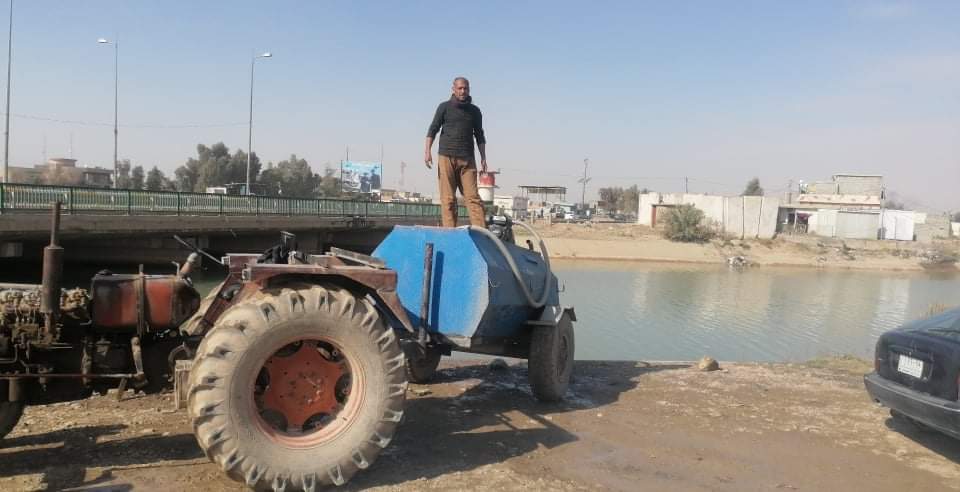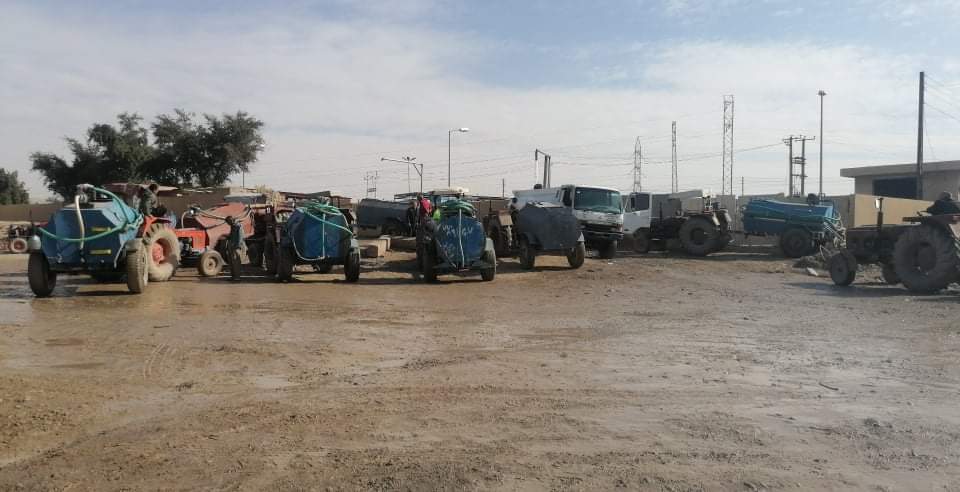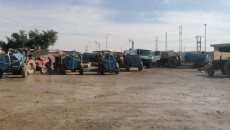Citizens in the Tuz Khurmatu district complain about the dirtiness of the drinking water they receive, claiming waste of poultry fields and sewage pollute the district water project while local officials deny such allegations yet affirm that maintenance is not caried out regularly.
The water project of Tuz Khurmatow district of Salah al-Din province is one of the important projects in the region, which provides drinking water for over 200,000 people in the Tuz Khurmatow district, as well as the Kifri district of the Garmian administration in the Sulaymaniyah province.
Goran Abdel-Wahab, who lives in the Kumari neighborhood of Tuz Khurmatow district, told (KirkukNow), "The (water) project has not been cleaned for years. In some areas, sewage water from some houses, as well as poultry or garbage, mixes with the water of the project... I can say that the project's water is not drinkable."
“When I check the water, I wonder if we should drink this, I wonder how we are still alive,” Abdel-Wahab pointed out that some installed filters to purify water and others purchase bottled water, yet the majority are forced to use the project’s water for drinking.
When I check the water, I wonder if we should drink this, I wonder how we are still alive
The multi-ethnic district of Tuz Khurmatu home to 130,000 Turkmens, Kurds and Arabs, located 70 kilometers south of Kirkuk and part of Salahaddin province, is the only disputed town of the province and one of the disputed territories between Erbil and Baghdad.
The predominantly Sunni-Muslim Arab province of Salahaddin, about 135 kilometers north of the Iraqi capital, once home for Saddam Hussein, is under the control of Iraq's Shia-led paramilitary forces known as al-Hashid al-Shabi, the Popular Mobilization Forces PMF.
The Tuz Khurmatu water project supplies the districts of Tuz and Kifri and the districts and sub-districts of Jabara, Sangaw, Amerli and Qara Tapah, in addition to hundreds of villages with drinking water, but the project's water does not reach all these areas.

Local officials denied that the water of the project is not drinkable yet admitted that cleaning and maintenance is not carried out per schedule.
Ahmed Khairullah, director of the Tuz Khurmatu Water Department, says that the project should be cleaned once every 10 years, but that has never happened for more than 10 years.
“The water is clean and not polluted, but the project has not been cleaned for more than 10 years, and the reason for this is the lack of necessary equipment besides Other reasons include the need to stop the project's water distribution for a month, and this is very difficult," Ahmed explained.
About what the citizens say about the pollution of the project water and its unsuitability for drinking, Khairallah said, "There are big trees and plants obstructing the project's water flow and its removal requires the use of a bulldozer, but this will take a month and it is not possible to cut off the water from the citizens so long."
The district of Kifri, , suffers from a scarcity of drinking water. Until last year, it relied on the Tuz as a main source for securing drinking water.
Kifri is one of the districts located within the disputed territories between the Iraqi federal government and the Kurdistan Regional Government KRG . It is part of Diyala province run by the Iraqi government, while administratively it is one of the districts of the Garmian administration.
I really don't know what the source of the water we receive is, but it is not suitable for drinking
Garmian local administration which includes several districts and sub-districts between Sulaimaniya and Diyala province is part of Sulaymaniyah Northern Province, one of the provinces of the Kurdistan Region of Iraq KRI.
Sarkawt Hamid, from Bawa Shaswar neighborhood in Kifri, said, "I really don't know what the source of the water we receive is, but it is not suitable for drinking, we have to use filters to purify the water."
The artesian wells and the Tuz Khurmatu water project are two main sources of drinking water for Kifri district, but the project’s water does not currently reach it, which has caused a suffocating crisis in that district.
Hamid Rashid, director of Kifri Water Department, said, "We currently rely on groundwater only through artesian wells. Previously, we used to receive the water of the Tuz Khurmatu project, but they cut it off from us this year.”
This comes at a time when the director of the Tuz Khurmatu Water Department says it has been supplying water to Kifri and there are no problems or obstacles.
However, according to (KirkukNow) follow-up, the water released from the project to supply the district of Kifri is subjected to many violations within the borders of the Jabara sub-district, which hinders its access to Kifri.
Regarding the water distributed to the residents of Kifri district, Rashid said, "It is groundwater through artesian wells, but it contains a large amount of lime and it is salty, so citizens use purification filters."
Late 2020, representatives of Kurds, Arabs and Turkmen residents of Tuz Khurmatu, visited Barham Salih, the Iraqi President, a Kurd, in Baghdad to request adequate public projects such as roads, electricity, water, schools and the health sector. Despite the promises they obtained regarding the delivery of their demands to the government and its fulfillment, their efforts resulted in nothing.






